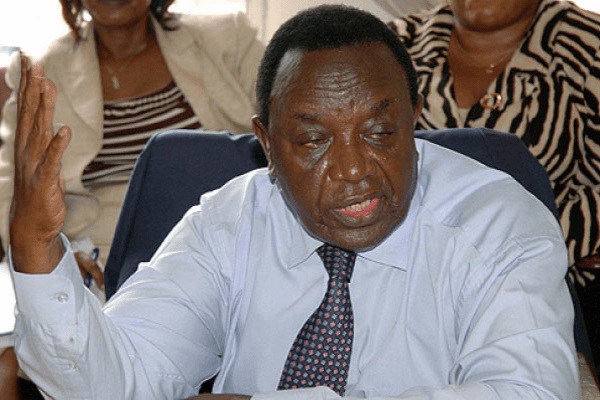
Why many of our politicians go broke after leaving cabinet even though we think they are rich
THE LAST WORD | ANDREW M. MWENDA | Last week, media reported that former Deputy Prime Minister, Henry Kajura, is in financial trouble. Three years after leaving cabinet, he is losing his house to a moneylender for failure to pay a loan. For a man who served in cabinet for 27 consecutive years, this is shocking. Yet Kajura is not alone. Our nation has a long list of politicians who move from cabinet/parliament to economic destitution. In a country where people see politicians as corrupt and therefore rich, this is viewed as a paradox of monumental proportions. But it is not.
We misunderstand corruption. We see it as a means of accumulating personal wealth yet that is just its most visible manifestation. Fundamentally, corruption is the way political power (in poor countries) is organized, exercised and reproduced. It is the grease that turns the wheels of politics, helping politicians build constituencies of support. To be successful politically requires one to accumulate resources and share them with constituents. This is the way through which the alien character of the inherited colonial institutional structure is domesticated.
Let us go to the bolts and nuts of how power is organised, how it is exercised and how it is reproduced in a poor country. How do political leaders and parties organise successful electoral and governing coalitions?
Most of our countries are ethnically and religiously diverse. They are also agrarian and poor. This combination creates strong moral and psychological attachment identity.
To build an effective electoral machine and/or governing coalition, a president and/or party must win over powerful and influential pillars of opinion in our ethnic and religious groups. They include traditional leaders, respected elders, articulate youths, successful businesspersons, accomplished professionals, religious clerics, influential intellectuals, etc. These act as the bridge between the president and/or ruling party and their ethnic and/or religious communities.
For the vast majority of people in poor countries, seeing their own in high government office is an expression of their presence in, and therefore having a share of, power. It also legitimises the state by giving the people a sense of belonging to the nation. President Yoweri Museveni has done this well, creating a vast patronage machine where very many of these influential elites are appointed to cabinet (81 strong), as presidential advisors (over 100), RDCs (240), ambassadors, board members of about 150 semi autonomous government agencies etc.
Patronage has been the main instrument Museveni has used to crowd the opposition out of the market for individuals with a profile, experience and organisational skills to rally a mass political base. It is the biggest challenge the opposition faces and explains why it cannot find enough high profile individuals to field in parliamentary elections – Museveni has coopted most of them.
 The Independent Uganda: You get the Truth we Pay the Price
The Independent Uganda: You get the Truth we Pay the Price






Back to the sordid business of justifying corruption thru intellectual gymnastics !
Does that proposition of yours that corruption is the key to holding the state together in poor countries and is a necessity for their development apply to your favourite tyrant’s country.
In that Tyrants country it is said corruption is non existent, his government is said to be meritocratic and the most efficient user of donor funds etc…
Bravo M9, it hurts when it is true or at least most of it. Problem is time and stability for that evolution not revolution?!!!
Mwenda, Mahatma Gandhi cautioned us about some of the things that will destroy us being: Politics without principles; Pleasure without conscience and Wealth without work.
Apart from being a paradox the perception that our politicians are obscenely rich (corrupt) and therefore coveted, it is also a natural law that one easily loses what he/she didn’t work for.
The fundamentals of corruption in Uganda is the social insecurity, which was planted through Structural Adjustment Policy (mass retrenchment/unemployment) of civil servants and e.g., the mass sale of all the pool houses. Since then social insecurity due to dramatic and exponential unemployment (87%) feeds corruption sic grabbing whatever is on sight. In other words, including president Museveni, all Ugandans suffer from serious social, economic and political insecurity.
1.Most wealthy families in Uganda have become broke because of reckless spending for example the Katto Family,Batwala Family of Three Ways Shipping Group,Wavamunno Family,Sembule while Indian owned businesses are flourishing coz of economize discipline.
2.Ugandans dont expect alot from their leaders which i think is a good attitude they are now working their ass off all they need from government is social facilities like roads,schools and hospitals.